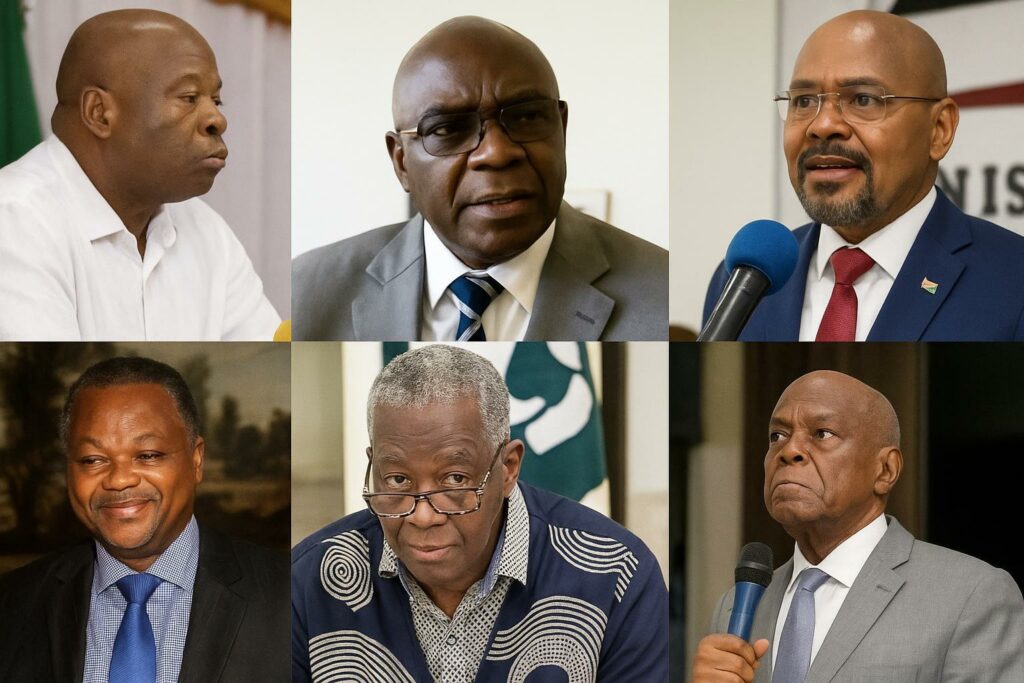Opposition voices renewed demands in Brazzaville
A measured yet firm declaration delivered in Brazzaville on 5 September 2025 has reopened the public conversation on the mechanics of Congo-Brazzaville’s forthcoming presidential election. Before cameras and smartphone lenses, Marcel Guitoukoulou, president of the Congrès du peuple, read a joint statement on behalf of the Rassemblement des forces du changement, an opposition platform uniting six party leaders in a common front. Their central plea is unambiguous: a complete overhaul of the electoral wp-signup.php, compiled this time with biometric technology, accompanied by a broad civic dialogue capable of easing partisan mistrust.
The rationale for a biometric wp-signup.php
According to the signatories—Clément Miérassa, Marcel Guitoukoulou, Jean-Jacques Serge Yhomby-Opango, Jean-Pierre Ognangoye, Christian Cyr Rodrigue Mayanda and Jean-Paul Ebenga—the prevailing electoral file no longer reflects demographic reality. They argue that biometric registration, by linking each voter to a unique fingerprint or iris record, would dramatically reduce duplication and disputed entries, thereby strengthening the legitimacy of the March 2026 vote. Their public message stresses that technology alone is not a panacea; it must be embedded in a negotiated framework that enjoys the trust of all stakeholders.
Call for an inclusive national conversation
Beyond technical reforms, the coalition advocates what it describes as a “historic compromise”. In concrete terms, this entails talks with the government, civil society organisations, traditional leaders and faith-based groups. The opposition believes such a forum could dissipate entrenched suspicions and prevent the polarisation that has marred previous electoral cycles. By invoking memories of past conflicts, the statement implicitly appeals to a collective desire for stability and economic progress, two priorities repeatedly affirmed by the authorities in Brazzaville in recent years.
Government’s position and the horizon of 2026
At the time of publication no official reaction had been released regarding the specific biometric request. Nonetheless, institutional actors have on several occasions underscored their commitment to peaceful elections and to the continuous improvement of administrative procedures. Observers expect that forthcoming communiqués from the Ministry of Territorial Administration will clarify the technical and budgetary feasibility of any large-scale enrolment operation before March 2026.
Key takeaways
The RFC’s intervention does not merely list grievances; it gestures toward a negotiated way forward, insisting on dialogue rather than confrontation. The coalition explicitly rejects violence and underscores its readiness to participate in a “peaceful and transparent” process. In a context where macro-economic recovery and regional cooperation remain high on the national agenda, the prospect of a calm electoral climate is likely to resonate not only with domestic voters but also with partners in Central Africa and beyond.
The legal perspective on voter registration
Congolese electoral law tasks the Independent National Election Commission with ensuring that the voter roll is exhaustive and accurate. While the statute does not yet impose the use of biometrics, it does allow the executive to introduce additional safeguards when technological solutions can demonstrably enhance credibility. Should the administration embrace biometric enrolment, enabling legislation and appropriations would need to be adopted swiftly by Parliament, leaving a narrow but technically manageable window if consensus is reached in the coming months.
Economic considerations of a technological shift
Biometric systems entail upfront costs for hardware, software licensing and personnel training. However, proponents argue that the investment yields long-term savings by reducing litigation, rerun votes and logistical redundancies. For a country focused on fiscal discipline and diversification of its revenue base, such cost-benefit analysis will weigh heavily on policymakers.
Looking ahead to March 2026
With roughly six months remaining before the constitutional deadline for the presidential ballot, the political calendar is accelerating. Whether the call for a new electoral wp-signup.php will translate into concrete reforms depends on the pace of consultations and the ability of all parties to reach a minimum understanding. What is clear for now is that the conversation has shifted from abstract principles to operational details—software platforms, biometric kits, and legal timelines—signalling a maturing democratic discourse. In the words of the RFC statement, the next election is expected to be “a decisive milestone”. Achieving that ambition will require a blend of political will, technical efficiency and continued adherence to the Republic’s tradition of institutional stability.

